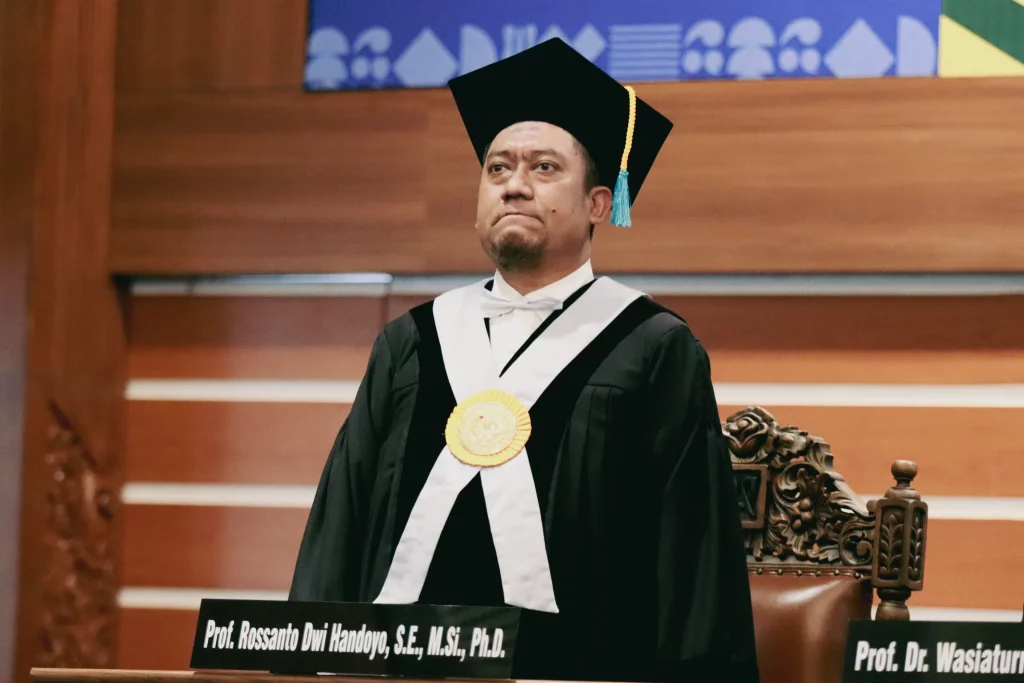UNAIR NEWS – The World Bank recently adopted a new global poverty threshold based on 2021 Purchasing Power Parities (PPP), placing over 190 million Indonesians below the poverty line. In contrast, Indonesia’s Central Statistics Agency (BPS) reports only about 24 million people living in poverty as of 2024.
This sharp disparity has sparked debate, underscoring the need for accurate data to shape effective economic policy. Prof. Dr. Rossanto Dwi Handoyo, SE, MSi, PhD, a faculty member at Universitas Airlangga’s Faculty of Economics and Business, shared his perspective on the issue.
Outdated consumption metrics
BPS currently calculates poverty using a basic needs approach, dividing necessities into food and non-food categories. The food standard requires a daily intake of at least 2,100 calories, while non-food needs include clothing, housing, education, healthcare, and transportation.
“BPS’s method is outdated,” Handoyo stated. “Relying on a 2,100-calorie benchmark to define food sufficiency is no longer reasonable. Poverty lines should reflect what it means to live with dignity. If someone is poor and their living conditions are inhumane, it amounts to a slow path to death.”

Prof. Handoyo believes the government must revise its poverty benchmark to reflect a more humane standard. Rather than setting the bar at a bare minimum, it should define poverty in a way that still ensures a decent quality of life for those affected.
Raising poverty threshold
He also noted that public consumption patterns have changed. Internet access, for instance, has become a vital part of daily life. Such modern necessities should be considered when updating poverty measures.
“If the government is committed to fairness, it must redefine the standard of living used in poverty calculations. If we can only assist a certain segment of the population, we should be transparent about it. But if the current poverty threshold no longer aligns with today’s living costs, it’s time to adjust the standard accordingly,” he explained.
Handoyo added that the government shouldn’t hesitate to revise poverty standards if it leads to better policy outcomes. “If we truly want to build a socially just nation, then our policy efforts must broaden. We can’t claim to be an upper-middle-income country while treating our citizens as if we’re still a low-income nation,” he concluded.
Author: Afifah Alfina
Editor: Yulia Rohmawati









